Haemo-globetrotter Bryan has blood tranfusions on his travels
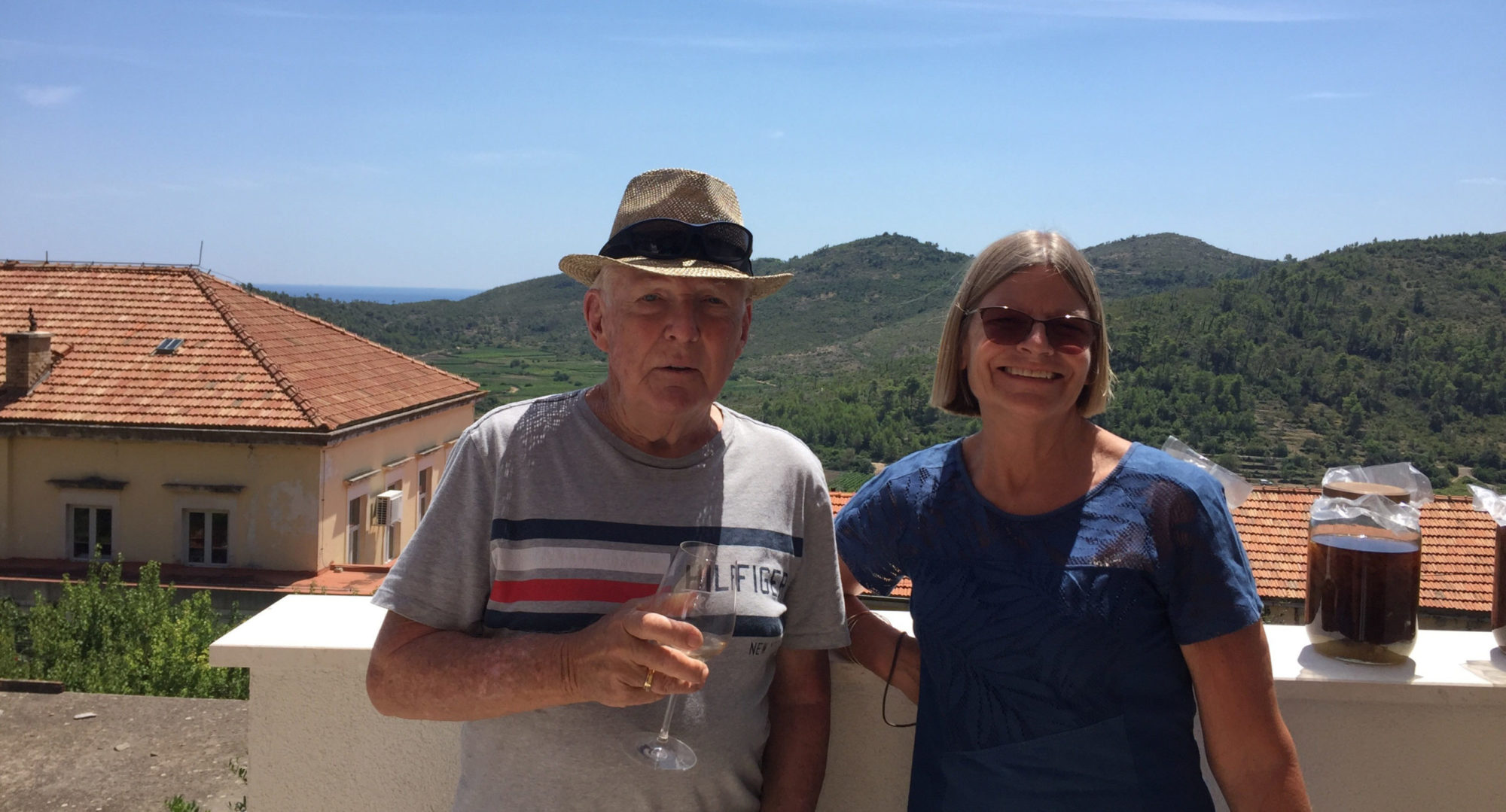
When veteran traveller Bryan Mitchell, 74, journeys from country to country, he gets treatment for his MDS along the way… that is until COVID-19 put a stop to his travels.
His last overseas transfusions were in Marseille and Paris during a six-week trip to France last September which he described as “very good and very expensive”.
“If you can afford a holiday overseas you can afford the medication” he said.
Since his diagnosis with MDS, he hasn’t let his fortnightly blood transfusions stop him from travelling the world with his wife of 38 years, Winona. It just requires some extra planning.
“I need to ensure that I have enough blood in my body to get me from A to B,” said the Shepparton (Victoria) resident.
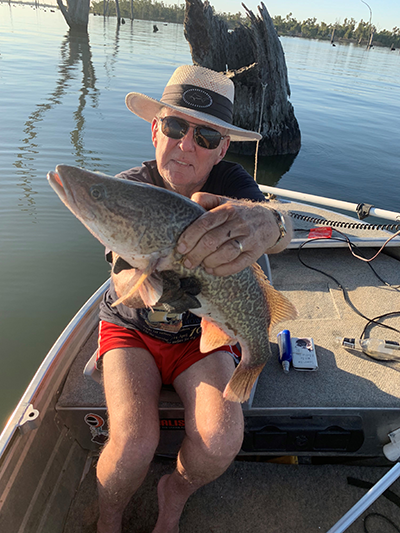
The couple has three adult children and four grandchildren and has tackled Bryan’s illness for a third of the time they have been together.
“Until the age of 55, I was in excellent health. I was still playing cricket and participating in long-distance running and down-hill skiing.”
But his heart health was faltering. Bryan developed angina, had stents put in and then bypass surgery in 2005.
“My life changed from that time.”
In 2007, a routine blood test prompted the beginning of what Bryan felt was a “long-term downturn in health”.
He was initially diagnosed with MDS which he said, “was something I had never heard of”.
Bryan’s condition is now categorised as an MDS-type chronic myelomonocytic leukaemia (CMML); a rare blood cancer that has characteristics of both MDS and myeloproliferative neoplasms (MPN).
Until this diagnosis, he had been “active and enjoying life” and, impressively, Bryan didn’t retire from the Public Service until 2014, aged 68, when he was quick to take up contract work.
“I was flippant to begin with. I went to see a respected oncologist in Melbourne who fully explained the illness. At the time, it seemed to have no impact on my life.
“However, my coexistent ischaemic heart disease is impacted if my haemoglobin drops too low (80-85),” Bryan explained.
“Recently, I have been as low as 74 and once I was 55 which was pretty scary.”
Having been transfusion-dependent since 2011, he currently has two to three units of transfused blood every two weeks.
“There is no treatment available to me other than blood transfusions, and deferasirox [Jadenu®, an iron overload medication] to help regulate my iron levels,” said Bryan, and this ongoing regimen is a frustrating reality for him.
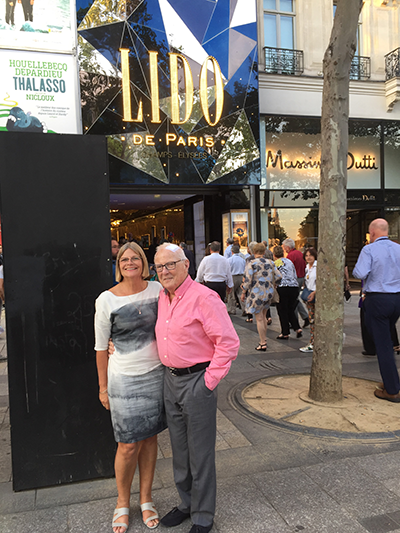
“MDS and ever-increasing iron levels have a significant impact, and anaemia is also a real problem,” he said.
“I have overcome heart disease and two strokes, one of which left me blind in my right eye.
“I am a true one-eyed Magpies’ supporter,” joked Bryan, but his struggles don’t stop there.
“As a result of a carcinoma, I have had plastic surgery to repair a crater in my scalp that wouldn’t heal.
“During the four operations I have had on my head, infection has caused many problems and MDS has had a big impact with my body’s ability to fight the infection,” he said.
“The last six months have been quite an adventure, but we’re getting there.”
But Bryan’s dreams along with encouragement from his family and friends have inspired him to continue his MDS journey.
“As well as my ambition to see the world and a desire to see my grandchildren grow up,” he added.
And these motivations have seen Bryan accomplish many feats.
“Three years ago, we decided to realise a dream and travel to India. We organised a two-week small group tour of three major areas, including the Taj Mahal,” said Bryan.
“I am so glad we did. Many travellers would not attempt a trip to India.
“We love to travel overseas but I need blood every two weeks. In 2018, we went on a three-week cruise through the Baltic counties. To achieve this, we needed to organise a blood transfusion somewhere,” Bryan explained.
“We found that at the major hospital in Stockholm [Sweden]. I was able to have two units of blood, enough to enable us to finish our holiday.
“There is a charge, but it’s worth it.”
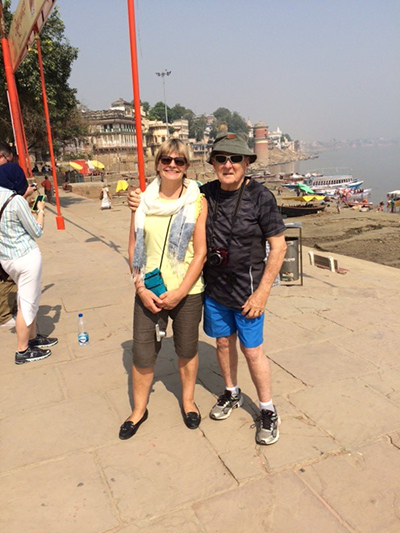
Years ago, the pair had met an old veteran on a cruise from Turkey to Amsterdam. The man, in his 80s, had been escorted to a hospital when they stopped in Vienna, to receive a blood transfusion.
“We had thought that was pretty good, but then we forgot about it. Now, here we are, doing the same thing,” said Bryan.
The amount of travelling Bryan does is impressive, blood cancer or not.
In 2020, the couple had planned four trips, but Bryan’s doctor said ‘no’ to him going on a family holiday to Bali with Winona and their daughter in late-January.
“They went without me as I was susceptible to infection.”
Then their Mekong River cruise in March was cancelled as the COVID-19 pandemic intensified.
“We have one planned to Portugal and Spain in July. We won’t be going, that won’t happen. And later, in August, Canada and there’s a real prospect that won’t happen either.
“Winona is my rock,” said Bryan about the help his wife provides so he stays on top of his medical regimen.
Bryan explained how, through all her own struggles, Winona has stayed strong and continues to make chasing their dreams possible.
“With the assistance of Mr Google and my wife’s persistence, we were able to organise transfusions at major hospitals in Marseille and Paris last year. The hospitals were modern and clean and English was spoken. Payment was upfront, and there was a 24-hour aftercare service.
“Some of the procedures are different, but don’t be alarmed, the lunches are great,” joked Bryan.
He has few regrets, except one – not participating in a new clinical trial, but hefty expenses and extensive travel due to living in a regional area made the trial seem inaccessible.
“I would jump at the opportunity now,” he said.
A regular at the oncology unit in Shepparton, Bryan feels that being surrounded by a support system, including others living with MDS, has made all the difference.
“The staff there are fantastic. They make attending so much easier, and happy. I admire their sense of humour and professionalism,” said Bryan.
Despite desperate struggles with severe anaemia and angina, Bryan still considers himself lucky.
“At least I know that if I get into trouble, I can get blood from someone like you,” said Brian when he spoke to MDS News.
“I see people in much worse situations than me. It makes me feel very humbled.”
Bryan wants to see MDS better understood as an illness.
“I’ve got close friends, one of 25 years and one of 40 years, who don’t understand,” he said.
“At times, I look terrific to my friends and family, but feel terrible. That is the nature of the beast.”
“I’ve gone from being as fit as a Mallee bull to nowhere near that person.”
Travel gives Bryan “something to really look forward to” but he also understands that “eventually the travelling will have to stop”.
Although physical activity is limited by his condition, Bryan keeps himself busy with many hobbies and he continues to play lawn bowls.
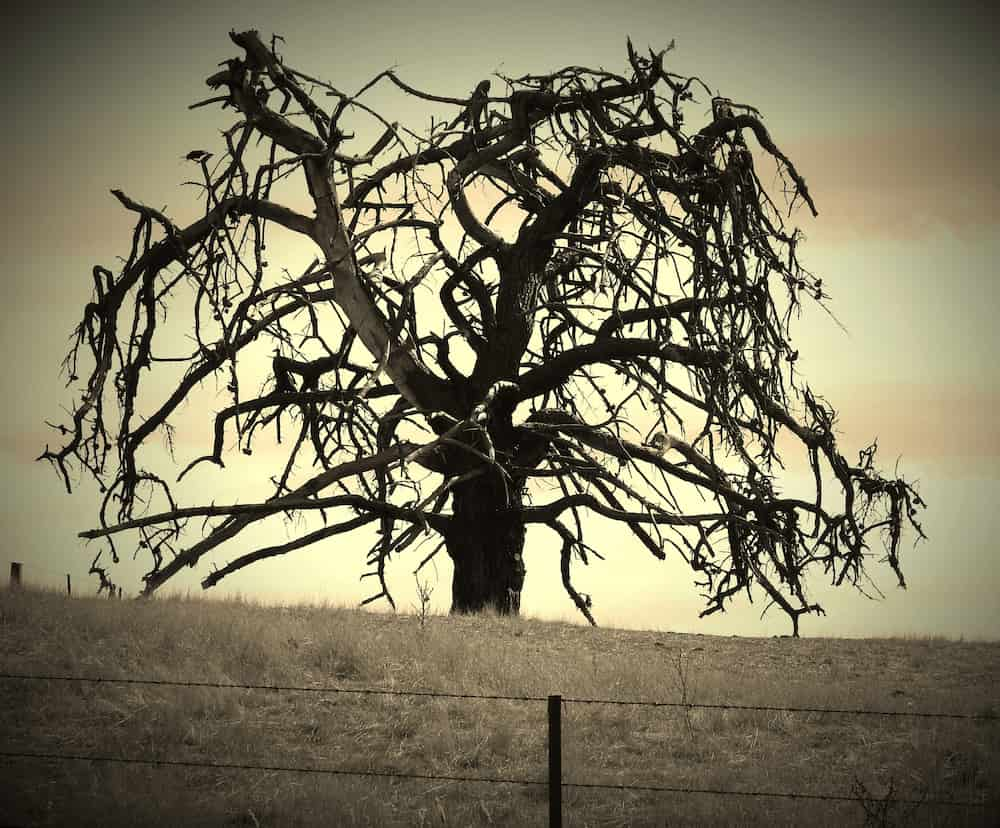
“I am also into photography and gardening; the environment is very important to me,” said Bryan. He has taken lots of travel shots over the years, and last year he won seven photography awards at the Shepparton Agricultural Show.
To others living with blood cancer, Bryan says, “enjoy what you can and do not be put off. Look for alternatives to help you achieve your dreams”.
Through everything, he assures others, “you can do it”.
Some of his friends tell him he pushes the boundaries too much, but he knows better.
“It can be done… just be positive and sensible.”
Last updated on March 25th, 2021
Developed by the Leukaemia Foundation in consultation with people living with a blood cancer, Leukaemia Foundation support staff, haematology nursing staff and/or Australian clinical haematologists. This content is provided for information purposes only and we urge you to always seek advice from a registered health care professional for diagnosis, treatment and answers to your medical questions, including the suitability of a particular therapy, service, product or treatment in your circumstances. The Leukaemia Foundation shall not bear any liability for any person relying on the materials contained on this website.